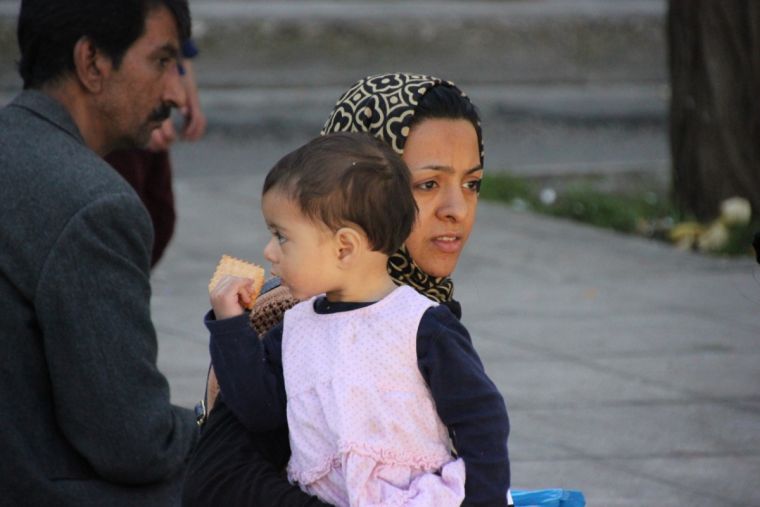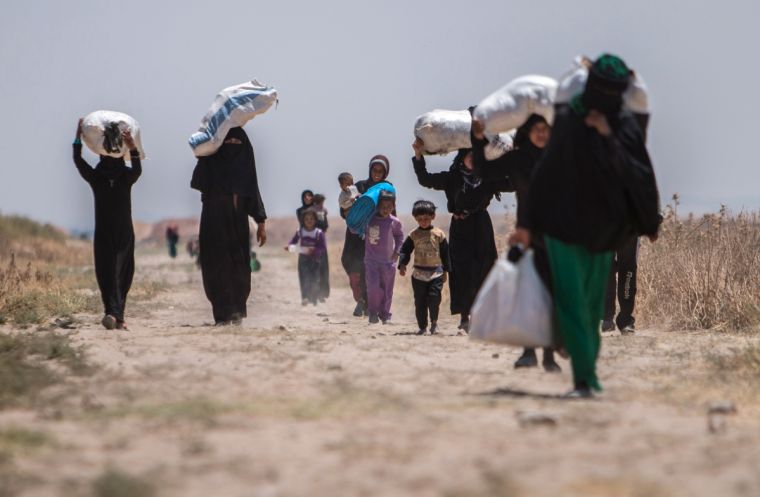Theresa May under pressure as MPs back petition urging protection for Christians in Middle East
Theresa May is under pressure to protect persecuted religious minorities in the Middle East today as a report warns around 80 per cent of Christians are being driven out of Iraq alone.
MPs are backing a petition signed by more than 800,000 people from 143 countries including North Korea, Afghanistan and the UK that will be presented to foreign office minister Alistair Burt this afternoon. It urges the UK government and the United Nations to ensure citizenship, decent living conditions and a role in rebuilding countries ripped apart by ISIS and civil war.

The worldwide call, with 200,000 signatories to the petition coming from the Middle East itself, is part of a campaign by persecution charity Open Doors to raise support for Christians in Iraq and Syria.
Second Church Estates Commissioner Dame Caroline Spelman and Labour MP Kate Green are backing the campaign with Green telling Christian Today a 'crude' understanding of faith in the UK meant persecution of Christians goes unchallenged.
'The characterisation of it [the conflict in Middle East] being a battle about Islamic extremism absolutely misses the nuances about the historic presence for centuries of many different faiths in that region. I think it is more a lack of knowledge in this country about what is an incredibly complicated political, cultural and historical set of factors that are driving those conflicts in the Middle East,' she said in an interview with Christian Today.
She added the Church of England was so concerned to build strong interfaith relationships and express its concern for all those who are suffering that it missed opportunities to single out the plight of Christians.
'One has to applaud their efforts to highlight suffering whoever is experiencing it but they are not always very strongly advocating for their own community, they are advocating for all those who are suffering,' she said.
Dame Caroline Spelman, herself a government minister representing the Church said: 'Despite decades of persecution, the church in the Middle East is uniquely placed to bring hope to their wider communities. We in the UK and elsewhere must stand alongside them as they seek to do this, and work tirelessly to secure a future for all people, no matter what their faith, in the Middle East.'

Lisa Pearce, Open Doors' CEO, said 'diversity counters extremism' as she warned 'it is unthinkable that Islamic extremism should drive the church from the Middle East – the birthplace of Christianity'.
She said: 'Christians and other religious minorities have been systematically persecuted across the Middle East and forced to become refugees. Once the hostilities are over and countries begin to rebuild it is vital that Christians and other religious minorities are included and play a key role in the restoration and reconciliation of their nations to ensure a homogenous, equal society.'
The call on the UK government and UN from Open Doors comes after a series of criticisms at how Western leaders have responded to the ongoing civil war in Syria and the ISIS insurgency. While UNHCR refugee camps have been set up across the Middle East and the UK has committed to resettling 20,000 of the most vulnerable from these camps, church leaders in the Middle East warn that Christians avoid the camps for fear of being attacked by the Muslim majority occupants. Instead they flee to churches and so are not eligible for resettlement to the UK and other governments working through the UN.
US Vice President Mike Pence has vowed to bypass the UN and give US aid directly to faith-based charities on the ground, rather than through the UN's aid system. However Green said this approach was 'unfortunate' and accused the US of not acting with care for all religious communities.
'While I think faith based organisations have tremendous potential to be really useful in rebuilding communities post conflict, we have to recognise that done badly or done for the wrong reasons they will shut out some people who are perhaps of other faiths or of no faith. I want to know that aid is being conducted in a context which respects the rights and needs of everyone whatever their faith,' she told Christian Today.
'I worry that the US government in its approach has a different agenda and is making judgements about which forms of belief or which practices it is and is not prepared to support.
'It is not necessarily motivated by genuine altruism and using the capacity of faith based organisations in a more equal way.'











